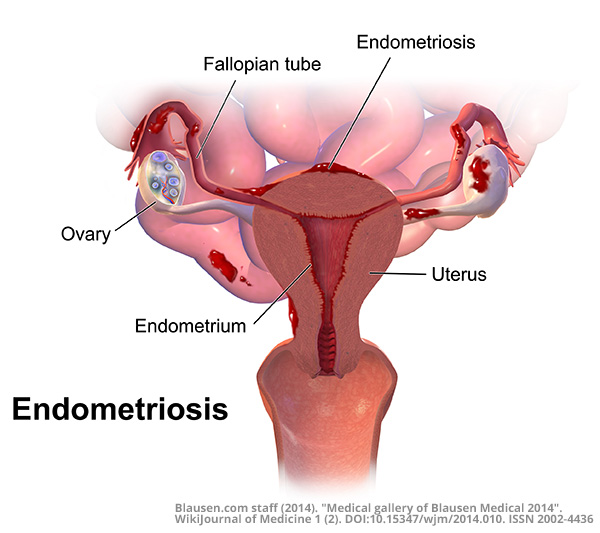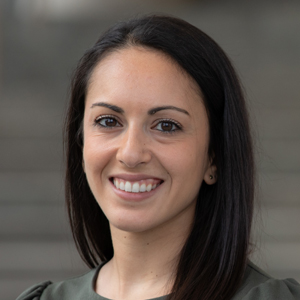What happens with endometriosis after menopause?
 Start Here ... What is Endometriosis?
Start Here ... What is Endometriosis?
Tissue called endometrium lines the inside of the uterus. When that type of tissue is present outside the uterus, the condition is called endometriosis. When a woman has endometriosis, that tissue responds to monthly hormonal changes in the body the same as the tissue inside the uterus. The inflamation, swelling, and scarring associated with this can cause women to have unbearable pain during menses. It's estimated that up to 10% of women between 25 and 40 suffer from endometriosis.
What happens after menopause?
Since endometriosis responds to the monthly release of female hormones (estrogen and progesterone), symptoms typically decrease or disappear with menopause. However, in some cases pain related to severe cases of endometriosis persist after menopause, either from the formation or scar tissue or the development of a sensitized pain response.
 What are the Signs and Symptoms of Endometriosis?
What are the Signs and Symptoms of Endometriosis?
The main symptom of endometriosis is pelvic pain. Pain is typically worst before or during menses and may be associated with sex, bowel movements, or urination. Endometriosis may also eventually lead to constant, chronic pelvic pain. In fact, endometriosis is found in about three quarters of women with chronic pelvic pain.
The amount of pain someone has is not always associated with how severe the endometriosis is. Some women with slight pain may have significant endometriosis, and others with a lot of pain may have just a mild. In fact, in some cases endometriosis is found in women with no symptoms at all.
In addition to causing pelvic pain, endometriosis can affect fertility. Extensive endometriosis can cause scarring and blocking of the fallopian tubes. Even mild cases can reduce the chance of getting pregnant from the normal 25% per month to around 7% per month, on average. Endometriosis is found in about one third of infertile women.
Be Aware of Endometriosis
- Recognize that endometriosis can affect women of all age and races, and symptoms vary and are not limited to painful periods.
- If you or a friend is suffering from infertility, request that the doctor consider endometriosis as a possible cause.
- If you suffer from endometriosis, feel empowered to share your story to help validate and support others.
- Use social media to share resources and educational material.
Share this page:
 About the author: Dr. Moona Arabkhazaeli
About the author: Dr. Moona Arabkhazaeli
Dr. Arabkhazaeli joined Minnesota Women's Care after completing a fellowship in minimally invasive surgery. About this choice of specialization, she says: "While I am well trained in all aspects of OBGYN care, I have a particular interest in abnormal uterine bleeding, endometriosis, pelvic pain, and fibroids. If surgery is needed, I have the specialized skills to offer a minimally invasive approach – one which which minimizes complications and hastens recovery – allowing patients to return to their lives more quickly."
Dr. Moona's specialization in minimally invasive surgery is a perfect example of the emphasis Minnesota Women's Care has on offering solutions to women that provide the greatest opportunity for recovery with the least amount of pain.
If you are interested in booking an appointment with Dr. Moona for endometriosis treatment or other condition, call Minnesota Women's Care at 651-600-3035 or click Book Now.
